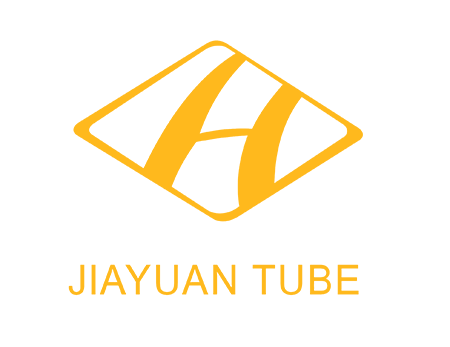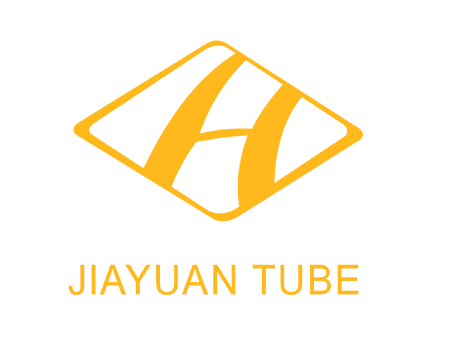Are you wondering how much hydraulic fittings will cost in 2026? Do you need to make a smart purchase decision for your factory or hydraulic system? Are material prices, connection types, and pressure ratings making it difficult to compare options? If you’re looking for clear, up-to-date information to guide your next bulk order or system upgrade, you’re in the right place.
In 2026, hydraulic fitting prices can vary widely depending on size, material, pressure level, and connection type. Basic carbon-steel fittings may start from as low as $1.20 each, while high-pressure stainless-steel fittings can reach $12.00 or more. For businesses placing large orders, discounts and bulk pricing often help reduce costs significantly.
In this article, Jiayuan Hydraulics simplifies the pricing landscape by offering a comprehensive overview of the current market, key pricing factors, and practical buying tips. Keep reading to discover how to find the best hydraulic fitting price for your application—whether you're managing costs, choosing a supplier, or planning long-term procurement.
Hydraulic Fittings Price List (Market Data in 2026)
In 2026, the hydraulic fitting price landscape reflects both raw‑material costs and global supply‑chain dynamics. Below is a comprehensive table—classified by accessory/connection type, material, pressure level, size, and application/industry—that summarizes the key price ranges for common hydraulic fittings:
| Accessory/Connection Type | Material | Pressure Level | Size Range | Application/Industry | Price Range (USD) |
|---|---|---|---|---|---|
| Straight Connector | Carbon‑Steel | Standard (<6 000 psi) | ¼"–1" | General hydraulic systems | $1.35–$3.50 |
| Elbow | Carbon‑Steel | Standard (<6 000 psi) | ½" | Construction, manufacturing | $2.25–$5.20 |
| Tee | Carbon‑Steel | Standard (<6 000 psi) | ½" | Agricultural, material handling | $2.25–$5.20 |
| Adapter / Coupler | Carbon‑Steel | Standard (<6 000 psi) | ½" | OEM equipment, custom builds | $2.80–$5.80 |
| Straight Connector | Stainless‑Steel | Standard (<6 000 psi) | ¾" | Food & beverage, corrosive environments | $6.50–$9.50 |
| Tee | Stainless‑Steel | Standard (<6 000 psi) | 1" | Chemical processing, marine | $8.20–$12.50 |
| Straight Connector | Carbon‑Steel | High (>6 000 psi) | ½" | Mobile equipment, heavy machinery | $5.00–$8.50 |
| Straight Connector | Stainless‑Steel | High (>6 000 psi) | ½" | Oil & gas, aerospace | $10.50–$14.50 |
| Bulkhead Fitting | Carbon‑Steel | Standard / High | ¾"–1" | Hydraulic presses, injection molding | $17.00–$28.00 |
| Quick‑Connect Coupling | Brass or Steel | Standard (<6 000 psi) | ¼"–¾" | Field service, equipment maintenance | $4.50–$18.00 |
What Are the Factors That Affect the Price of Hydraulic Fittings?
Several interrelated factors shape the hydraulic fitting price you’ll encounter when sourcing components. Understanding these drivers helps you anticipate costs and negotiate better deals.
1. Material Selection
The choice of base metal—carbon steel, stainless steel, brass, or aluminum—has the single largest impact on cost. Carbon steel remains the most economical option for general‑purpose systems, while stainless steel commands a premium for its superior corrosion resistance. Brass and aluminum offer mid‑range pricing and are often chosen for lightweight or conductive applications. Specialty alloys (e.g., nickel‑plated or zinc‑coated steels) incur additional processing fees.
-
Carbon steel hydraulic fittings: starting at about $1.20 per piece
-
Brass and aluminum hydraulic fittings: starting at about $2.50–$4.00 per piece
-
Stainless steel hydraulic fittings: starting at about $5.50 per piece
2. Size and Thread Type
Larger diameters require more raw material and longer machining cycles, so a bulkhead fitting in 1½″ costs significantly more than a ¼″ straight connector. Thread standard also affects tooling costs: fine‑thread or metric threads are pricier to produce than common NPT or BSPP threads.
-
¼″ straight connector (NPT): $1.20–$3.00 each
-
½″ elbow (BSPP): $2.00–$4.50 each
-
1½″ bulkhead fitting (metric fine thread): $15.00–$25.00 each
3. Pressure Rating and Wall Thickness
Fittings rated above 6 000 psi require thicker walls and more stringent quality checks. This increases both material usage and inspection time, driving up the per‑piece price.
-
Standard‑pressure carbon‑steel (≤6 000 psi): $1.20–$4.50 per piece
-
High‑pressure carbon‑steel (>6 000 psi): $4.50–$7.00 per piece
-
High‑pressure stainless‑steel (>6 000 psi): $9.00–$12.00 per piece
4. Manufacturing Volume and Order Size
Suppliers tier their pricing to reward larger runs. Small pilot orders may incur handling fees, while OEM contracts enjoy bulk discounts.
-
Orders of 1–10 units: add 5–10% small‑order surcharge
-
Orders of 100–499 units: list price
-
Orders of 500+ units: subtract 10–20% volume discount
5. Certification and Testing Requirements
Basic ISO 9001 certification is often built into standard quotes, but specialized testing adds cost. Batch‑traceability, ultrasonic inspection, or third‑party burst tests require extra administrative and lab fees.
-
Standard ISO 9001 certification: included
-
Batch‑traceability report: +$0.20 per fitting
-
Burst‑test certificate: +$0.50 per fitting
6. Surface Treatments and Finishes
Protective coatings guard against corrosion in harsh environments but add 15–25% to the base price. In sectors like food & beverage or marine, these finishes are often mandatory rather than optional.
-
Phosphate coating (carbon steel): +15% (e.g., $2.00 → $2.30 per elbow)
-
Black oxide finish (carbon steel): +20% (e.g., $3.00 → $3.60 per connector)
-
Electropolishing (stainless steel): +25% (e.g., $7.00 → $8.75 per tee)
How to Choose the Right Hydraulic Fittings Manufacturer According to Your Budget?
Selecting a manufacturer who balances cost with quality is crucial to optimizing your hydraulic fitting price without sacrificing performance. Begin by outlining your minimum requirements—pressure rating, material grade, and required certifications—to ensure any quote you receive aligns with your project specifications.
Evaluate potential suppliers across these dimensions:
1. Quality Certifications and Testing
Look for ISO 9001 registration and adherence to industry standards such as SAE J514 or DIN 2353. Manufacturers that perform in‑house pressure testing and offer batch traceability often command higher prices, but they deliver consistency and reliability—essential when downtime carries steep penalties.
2. Minimum Order Quantities (MOQ) and Volume Discounts
Some factories set MOQs as low as 50 pieces, while others require 500+ units. If your budget allows bulk purchasing, negotiate tiered discounts—many suppliers reduce the hydraulic fitting price by 10–20% for large runs. For smaller orders, be prepared to absorb a 5–10% handling surcharge.
3. Lead Time and Production Capacity
A cheaper per‑piece quote may hide long lead times. Request realistic production schedules and factor in shipping transit. If you operate on a tight timeline, paying a small premium for expedited manufacturing can prevent costly project delays.
4. Geographical Location and Logistics
Proximity to major ports or your facility can significantly affect landed cost. Chinese and Southeast Asian manufacturers often offer lower base prices, but freight, customs duties, and inland transport can erode savings. Compare total landed cost—not just the factory quote—to make an informed decision.
5. After‑Sales Support and Warranty
A manufacturer’s willingness to address post‑delivery issues can save money in the long run. Ask about warranty terms, replacement policies for defective parts, and technical support channels. Suppliers that stand behind their products may charge slightly more upfront but reduce your risk of unexpected repair expenses.
Where Can I Buy Cheap Hydraulic Fittings?
1. Buy Directly from Hydraulic Fitting Manufacturers
Purchasing straight from the source lets you skip distributor markups and often provides tailor‑made solutions for your exact specifications.
Advantages of buying from manufacturers:
-
Factory‑direct pricing, typically 20–40% below reseller rates
-
Customizable connection types, materials, and pressure ratings
-
Factory‑backed warranties and direct technical support
Example: Ordering 500 carbon‑steel fittings from Jiayuan Hydraulics can cost up to 30% less than buying the same parts through a third‑party distributor.
Top Manufacturers:
-
Jiayuan Hydraulics (China) – Competitive bulk pricing, low MOQs
-
Eaton (USA) – Premium quality with volume discounts
-
Parker Hannifin (Global) – Global network with factory support
2. Purchase from Authorized Industrial Distributors
Distributors bundle fittings with hoses, seals, and other accessories—often running promotions that undercut list prices.
Advantages:
-
Immediate stock availability for standard fittings
-
Bundled deals on hose-and‑fitting kits
-
Periodic flash sales or clearance events
Example: A distributor promotion at RS Components might offer a 15% discount on all stainless‑steel fittings when ordered with compatible hydraulic hoses.
Notable Distributors:
-
ParkerStore by Parker Hannifin
-
Eaton Industrial Distribution
-
RS Components
3. Shop on Online Marketplaces
Platforms like Alibaba, GlobalSources, and Made‑in‑China let you compare dozens of suppliers side‑by‑side for the lowest quoted fitting price.
Advantages:
-
Access to hundreds of small and mid‑sized manufacturers
-
Ability to request multiple quotes quickly
-
Low minimum‑order quantities on many listings
Example: A ¼" brass quick‑connect fitting listed at $2.50 on Alibaba may drop to $2.00 when you negotiate directly with three different suppliers.
4. Source from Surplus & Used‑Equipment Resellers
Surplus vendors and auction sites offer lightly used or overstock fittings at a fraction of new‑part prices—ideal for prototyping or non‑critical systems.
Advantages:
-
Prices as low as 30–50% of new‑part costs
-
Quick turnaround with local pickup options
-
Bulk lots of mixed sizes for R&D use
Example: SurplusCenter.com often lists carbon‑steel elbows in mixed-size lots starting at $0.75 each, perfect for testing and development.
5. Attend Industrial Auctions & Salvage Sales
Machinery auctions and salvage yards can yield high‑quality fittings salvaged from decommissioned equipment—sometimes at pennies on the dollar.
Advantages:
-
Opportunity to inspect fittings in person
-
Extremely low prices on bulk lots
-
Chance to find rare sizes or specialty connection types
Example: A local plant shutdown auction might offer hundreds of NPT‑thread tees for $0.50 each, less than half the typical list price.
FAQ: Hydraulic Fitting Costs
Q: What is the typical price range for hydraulic fittings per piece?
Hydraulic fitting prices vary by material, size, and pressure rating. In 2026, entry‑level carbon‑steel connectors range from $1.20 to $3.00 each, while high‑pressure stainless‑steel fittings can reach $9.00 to $12.00 per piece. Bulk orders often qualify for 10–20% discounts, so your actual cost may be lower when ordering in volume.
Q: How can I lower my hydraulic fitting price?
To reduce costs, order larger quantities to tap into economies of scale, negotiate tiered pricing with manufacturers, and time purchases when raw‑material prices are down. Choosing carbon‑steel over stainless steel and opting for standard thread types (NPT or BSPP) can also help keep per‑piece prices competitive.
Q: Are stainless‑steel fittings worth the extra cost?
Stainless‑steel fittings add 15–25% to the base hydraulic fitting price due to higher raw‑material and machining expenses. They’re recommended for corrosive environments—such as food & beverage, marine, or chemical processing—where long‑term durability outweighs upfront costs.
Q: What is the price of JIC Fittings in 2026?
In 2026, standard carbon-steel JIC (37° flare) fittings typically cost between $1.50 and $7.00 per unit, while stainless-steel versions range from $9.00 to $18.00 depending on size.
Because JIC fittings are highly standardized and widely used in construction and agricultural machinery, they remain a cost-effective choice, though they generally command a 20% to 40% premium over NPT threads due to their superior vibration resistance and reusable sealing surface.
Q: What lead time should I expect for custom fittings?
Standard stock fittings often ship within 1–2 weeks, while custom designs or special finishes may require 4–8 weeks for production and testing. Expedited manufacturing is available at a premium if your project timeline is tight.
Finally: Find the Best Hydraulic Fittings Price for Your Business
Navigating the many variables that affect hydraulic fitting price—from material selection and pressure rating to order volume and certifications—can be challenging. With up‑to‑date market data and a clear understanding of cost drivers, you’re now equipped to make informed purchasing decisions.
At Jiayuan Hydraulics, our transparent pricing, flexible MOQs, and volume discounts ensure you get the best value. Whether you need standard carbon‑steel fittings or high‑spec stainless‑steel components, our expert team will help you find the right balance of cost and quality.
Ready to optimize your hydraulic system budget? Contact our sales engineers today to request a personalized quote and secure the best hydraulic fittings price for your next project.


